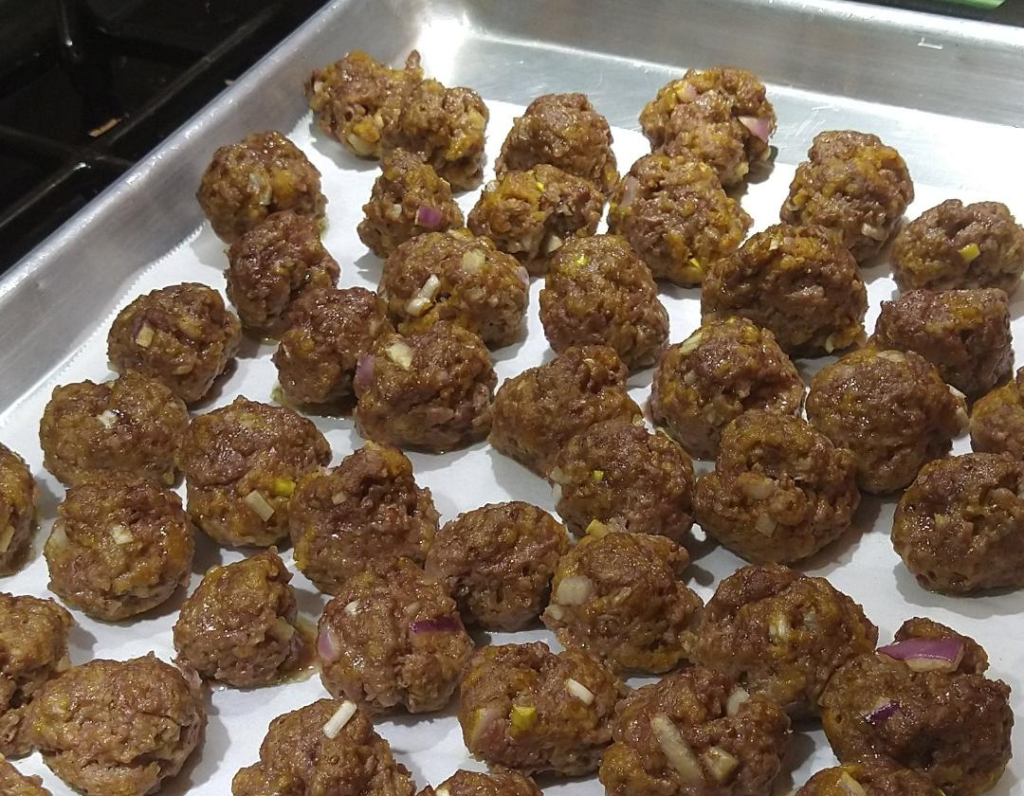By Carolyn McDonald Graf

This is not the first time this recipe appeared in our newsletter, but I brought these meatballs to Grandfather Mountain Highland Games and many people asked for the recipe, so here it is again.
Caledonia, an ancient name for Scotland, is said to be a corruption of Celyddon, a Celtic word meaning “a dweller in the woods and forests.” The word Celt, from the same source, means the same thing.
Scotland has a long history of trade with India, and Indian food is the most common type of restaurant found there. Curry technically means a mixture of spices and there are many different curries, but it also is sold as a type of seasoning like the one used in this recipe. Choose the type that appeals to you: spicy or mild.
Meatballs in Caledonia can be traced back to the days when they were called “spoon meat,” because, before the introduction of forks, the food could be eaten with either a spoon or the fingers. As such, these meatballs make great travel food as well as an easy appetizer. They are good to take in your cooler to a highland games or to serve at an afters party. In the original recipe, the meatballs are fried. But, I discovered they bake just fine in the oven with less mess. For dinner, I sometimes add tomato sauce and serve them over spaghetti but they are just wonderful plain either warm or cold.
½ cup milk
½ cup chopped onions
1 ¼ pound ground beef
1 tablespoon Dijon-style mustard
1 tablespoon Worcestershire sauce
1 tablespoon curry powder
1 tablespoon fresh lemon juice
¼ teaspoon cayenne pepper
1 teaspoon salt
¼ teaspoon ground pepper
Vegetable oil for frying (if you decide to fry them instead of baking)
Place bread crumbs and milk in a large bowl. Add remaining ingredients. Mix thoroughly and roll a little at a time into small balls. Fry meatballs, several at a time, until brown on all sides. Or, instead of frying, set them on a sheet pan lined with foil or parchment paper and bake at 425° for about 12 minutes. Drain and serve at once or store in fridge or freezer. Makes 8 or 9 dozen.
Modified from The Scottish-Irish Pub and Hearth Cookbook, Kay Shaw Nelson, 1999, Hippocrene Books, Inc. New York, New York.

